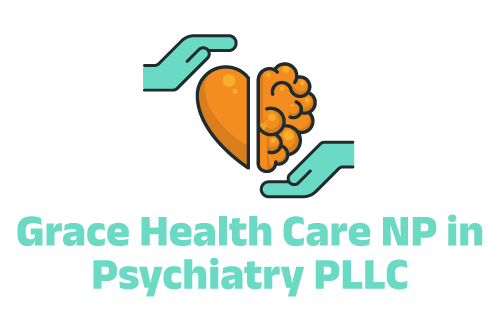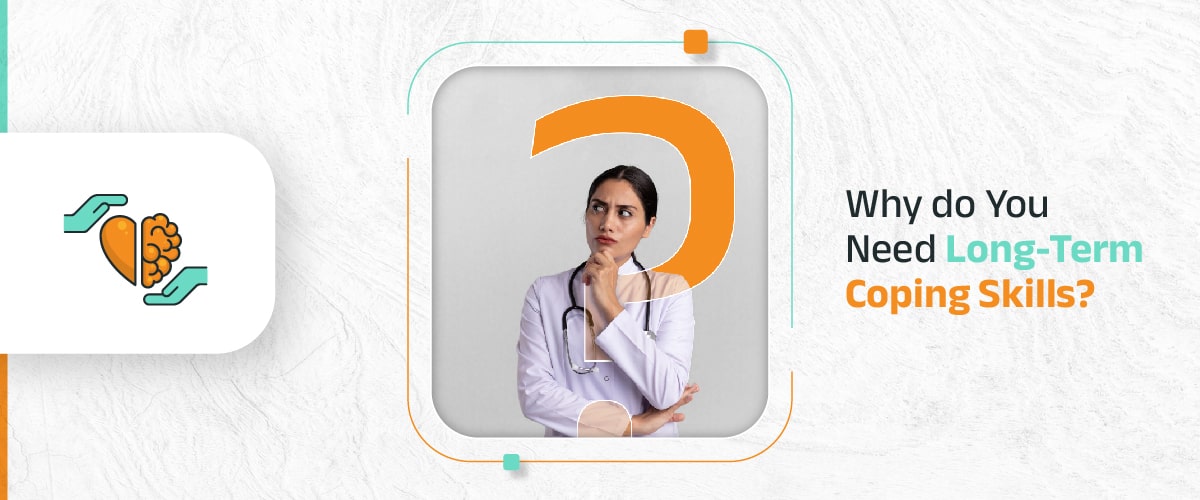Life today moves quickly. So, it is important to know why do you need long-term coping skills.
Life has ups and downs we can’t control everything. But we can learn to handle it.
Lasting coping skills help us reduce stress and keep our minds and feelings healthy. Let’s discuss the need for these essential skills and how they can help you.
Grace Healthcare, located near Coterie Hudson Yards, provides multiple coping skills to enhance emotional well-being! We have mindfulness, chill-out methods, ways to reshape thoughts, and problem-solving strategies. Reach out for more information!
What Is Coping Skills?
“Coping skill” is a wide term for things that improve mental health. Think of a “coping mechanism” like this:
It’s a way we adjust to stress from our surroundings. This can be a choice we consciously or unconsciously make.
It helps us manage our behaviour better or provides comfort to our minds. So, anything healthy that reduces stress counts as a coping skill. This includes proper sleep, balanced eating, and regular workouts.
Yet, we usually use “coping skills” to mean quick-relief methods. These are things we can do right then and there when we feel too much.
They help us handle our feelings and deal with stress better without later regretful choices.
Why Do You Need Long-Term Coping Skills?
Here’s why these skills are so important:
-
Bouncing Back from Challenges
We face hurdles in life that require resilience. Long-term coping skills help in dealing with troubles calmly and effectively, instead of being swept up in stress.
It’s all about confronting challenges with optimism and swiftly returning to normal.
-
Managing Your Emotions
Everybody experiences feelings, which at times can feel intense. Learning how to manage these emotions with coping skills proves important. Methods such as taking slow, deep breaths or practicing mindfulness enable us to remain composed and prevent emotions from dominating.
-
Solving Problems Effectively
When you face problems, you need good solutions. Learning coping strategies helps you solve problems and discover clever resolutions.
This enhances your ability to tackle obstacles and uncover answers, whether they arise at home or in your job.
-
Keeping Your Mind Healthy
Keeping your mind healthy is a continuous task. Skills to manage stress help you balance life’s pressures.
Routine habits such as workouts, chats with buddies, and chill-out times, help maintain mental fitness and stop issues from growing uncontrollably.
-
Building Stronger Relationships
Good relationships are important for a happy life. Coping skills help you communicate better, listen well, and healthily handle conflicts. This makes your relationships stronger and more positive.
-
Avoiding Burnout
Burnout occurs from stress and overwhelm. Coping skills help manage time, set boundaries, and practice self-care, preventing burnout and keeping you balanced.
Healthy vs Unhealthy Coping Skills
Coping skills are the actions, we take to deal with stress, troubles, or hard emotions, consciously or not.
Unhealthy coping skills may bring immediate comfort but may create issues down the line.
Healthy coping skills might not provide a fast fix, but they aid us in feeling better over time.
Example of Healthy Habit |
Example of Unhealthy Habit |
| Exercise | Ignoring problems or procrastinating |
| Mindfulness and Meditation | Overeating or Undereating |
| Healthy Eating | Using alcohol or drugs |
| Problem-solving techniques | Aggression |
| Hobbies and Interests | Excessive Screen Time |
| Journaling | Self-destructive behaviors |
| Time Management | Sleep too much or too little. |
5 Coping Skills for Teens
There are five main ways to handle stress that can help teens. Here’s a simple breakdown of each type and some tips for using them:
-
Problem-Focused Coping
This means acting to fix a problem. It works best for problems you can solve. Try these:
- Find out as much as you can about the problem and who can help you.
- Break the problem into smaller, easier steps and handle them one at a time.
-
Emotion-Focused Coping
This is about managing your feelings. It helps you deal with how you react to stress. Try these:
- Practice deep breathing and relaxation to calm yourself down.
- Use creative activities like drawing, listening to music, or dancing to express your emotions.
-
Social Support
Talking to others can be very helpful. It can lift your mood and help with specific issues. Try these:
- Talk to a close friend who makes you feel good about yourself.
- Reach out to a trusted adult, like a parent, coach, or school counselor.
-
Meaning Making
This means finding a positive side to tough situations. It changes how you see and feel about things. Try these:
- Change negative thoughts to more positive ones to see the situation differently.
- Write in a journal to understand your feelings and see them as part of your life story.
-
Religious Coping
Being spiritual may provide comfort and purpose. You don’t need a formal religion, anything that brings a sense of connection works. Consider these:
- Spend time in nature to feel a sense of wonder and gratitude.
- Volunteer to help others, which can reduce stress and improve your well-being.
Coping Skills Activities for Adults
Unique coping skills activities can help people manage a range of challenges, from everyday stressors to mental health issues. These skills can be categorized into four main types:
Emotional Coping Skills Activities:
- Journaling: Writing down thoughts and feelings to process and release emotions.
- Deep Breathing: Calm yourself down. Use breath control methods.
- Art Therapy: Engaging in creative activities like drawing or painting for non-verbal emotional expression.
- Meditation: Focusing the mind to clear cluttered thoughts and enhance emotional balance.
- Music Therapy: Listening to or creating music to address emotional needs and foster relaxation.
Cognitive Coping Skills Activities:
- Mindfulness: Be present now in the moment to reduce anxiety and improve mental well-being.
- Positive Affirmations: Say upbeat affirmations to raise confidence and fight negative thoughts.
- Cognitive Behavioral Therapy (CBT): Change harmful thought cycles and actions to uplift spirits and resilience.
- Visualization: Creating mental images of positive or calming scenarios to manage stress and improve focus.
It’s important to note that cognitive coping techniques do not involve direct discussion of personal issues but focus on altering thought patterns and perceptions.
Social Coping Skills Activities:
- Support Groups: Talk about your troubles with people who understand. They can give comfort and offer useful ways of dealing.
- Conflict Resolution: Better relationships happen with good communication. Solve disagreements effectively.
- Assertive Communication: Share your needs and emotions in a way that’s kind and clear. It helps to make relationships stronger.
- Family Therapy: Therapy can fix family problems. It’s a good way to talk and help each other more.
Physical Coping Skills Activities:
- Exercise: Engaging in regular physical activity to improve mood and reduce anxiety through endorphin release.
- Yoga: Use yoga postures, breathwork, and quiet time to lower your stress and improve fitness.
- Adequate Sleep: Good sleep goes a long way in boosting your mood, and energy, and lowering stress.
- Healthy Eating: Eat well-balanced meals to keep your mind and body healthy, it can lift your mood and keep anxiety in check.
- Massage: A good massage is a therapy for your body that eases stress and improves your well-being.
Conclusion
Why do you need long-term coping skills? We need long-lasting ways to reduce daily stresses to stay mentally and emotionally healthy in our speedy world.
It’s about facing hardships, controlling emotions, fixing problems, and improving relationships. This stops us from getting overwhelmed and keeps our self-belief strong.
Knowing the difference between good and bad mechanisms is key. These abilities are crucial to manage stress easily and have a well-rounded, satisfied life.
FAQs
Q: Why coping skills are important?
Coping skills matter as they provide us with tools to manage stress and challenge periods more effectively. They offer practical solutions to issues, making remaining calm and healthy simpler.
Q: What are coping skills for addiction recovery?
Coping skills for addiction recovery include staying active and practicing mindfulness. This helps manage cravings and stress and supports emotional well-being.
Q: Meditation and prayer are which forms of coping skill?
Meditation and prayer belong to the emotional coping skills category. They ensure emotional health by delivering comfort and tranquility during difficult instances.
Q: What are coping skills exercises for adults?
For adults, coping skills exercises consist of deep breathing, mindfulness, and physical activities. They help control stress and enhance overall wellness. Reaching out to others and questioning negative thoughts can also be helpful.







No comment